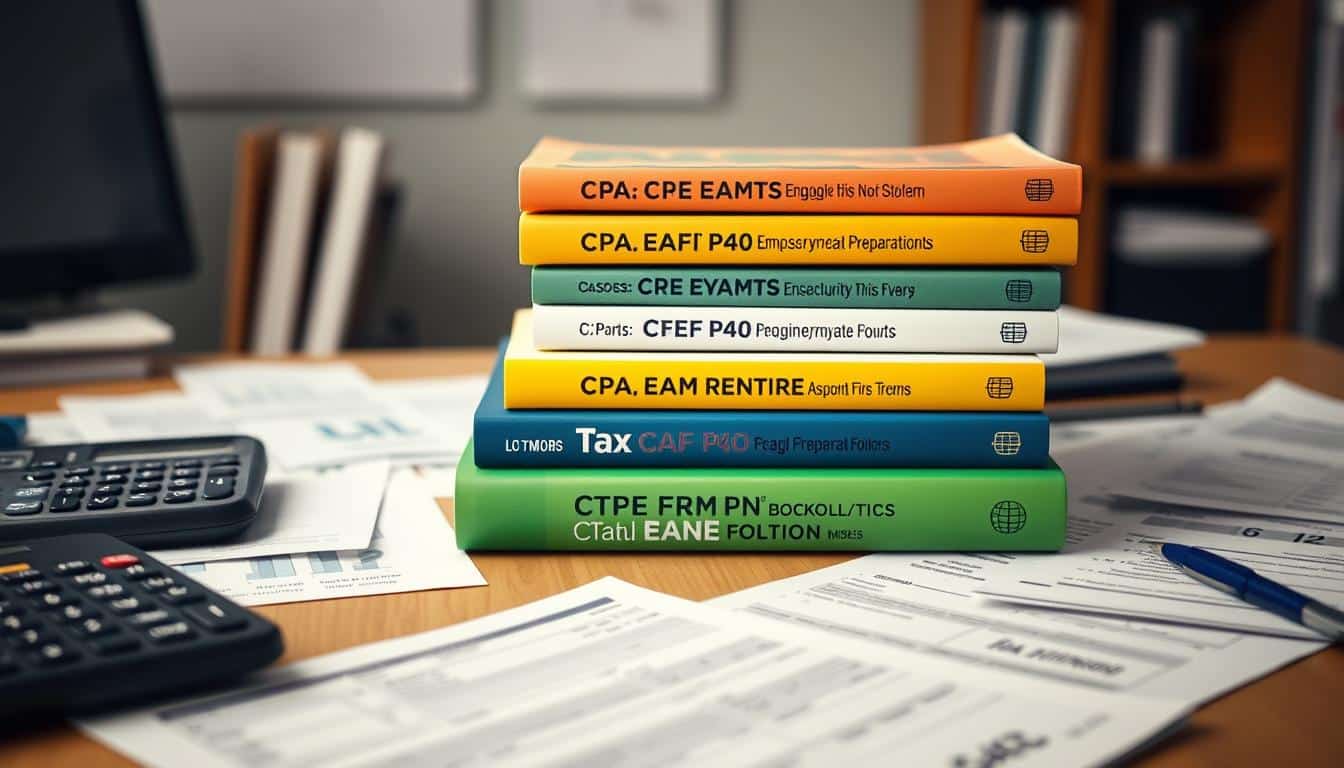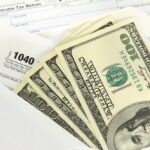Starting your journey to become a CPA can be tough. You’re not just worried about studying and getting enough coffee. You also wonder if you can deduct CPA exam fees from your taxes. It seems like the IRS should help out, given the big investment you’re making in your education.
But, the IRS has rules that make things a bit tricky. Most CPA exam fees and related costs, like CPA review courses, are not tax-deductible. However, if you’re just looking to improve your skills for your current job, some fees might be deductible. Let’s look closer at how taxes treat educational expenses and if you can get any tax breaks on your CPA path.
Key Takeaways
- CPA review course expenses are classified as personal expenses and are not tax-deductible.
- IRS regulations limit deductions to those that maintain or enhance skills related to your current job.
- Exam fees for professional certifications may qualify for deductions, depending on your specific job situation.
- Employer reimbursements for CPA exam fees are typically taxable as income.
- The Lifetime Learning Credit does not cover CPA exam fees or review courses.
The Cost of Your CPA Journey
Becoming a CPA is exciting, but it can be pricey. You’ll face costs for tuition, exam fees, and prep courses. Knowing these costs helps you plan your journey wisely.
The Financial Implications of Becoming a CPA
Getting your CPA is more than just passing exams. It’s a big financial step. Here’s what you might spend:
- CPA Exam Application Fee: This varies from $90 to $150.
- Total CPA Exam Costs: Expect to spend between $1100 and $1500 for all four parts.
- Review Courses: These programs range from $1000 to $4000, depending on the provider.
- Rescheduling Fees: A slight fee, typically $35, can be incurred depending on how far in advance you notify.
- Retake Fees: If you need to, these costs range from $50 to $200.
- International Exam Fees: For those outside the U.S., fees are approximately $390 per section.
- Cancellation Fees: Depending on your timing, costs vary from $0 to $35.
The total cost can be between $2240 and $5850. Adding in the CPA Ethics Exam and state licensing fees, your initial investment may seem high. Yet, many see these costs as worth it for a rewarding career.
Many people find ways to manage these costs. While exam fees are big, some firms help with reimbursement or education assistance. The IRS doesn’t let you deduct these fees, so planning is key to handling the costs of becoming a CPA.
Are CPA Exam Fees Tax Deductible?
To find out if CPA exam fees are tax deductible, you need to look closely at IRS rules. Usually, the answer is no. IRS Publication 970 says that study materials for the CPA exam don’t count as work-related educational costs. So, your CPA exam fees are seen as personal expenses.
IRS rules say you can only deduct expenses that help you keep or improve your current job skills. If you’re starting a new career, like becoming a CPA, these costs don’t qualify. Court cases, like Glenn v. Commissioner, have made it clear that CPA review course costs are not deductible.
Getting a CPA is tough. While 50% of applicants pass all sections on their first try, UWorld Roger CPA Review has a 94% pass rate. But, it’s important to know if you can get tax deductions for these costs.
The Tax Cuts and Jobs Act of 2017 changed tax rules. It removed personal tax preparation deductions for most people. Many choose the standard deduction, which means they can’t deduct their tax preparation costs.
In summary, CPA exam fees are not tax deductible under IRS rules. If you’re working towards your CPA, remember this. It helps you plan your finances without counting on tax breaks for these big fees.
Understanding the Different Types of Educational Expenses
As you start your CPA journey, knowing about different educational expenses is key. There’s a big difference between costs for your career growth and personal ones. Not all education costs qualify for tax deductions.
Qualified Education vs. Personal Expenses
Qualified education includes tuition, fees, and materials for accredited programs. These costs help you grow professionally and might get you financial aid or tax breaks. On the other hand, personal expenses are for courses that don’t directly help your job. For example, a cooking class isn’t related to being a CPA.
Limits on Deductibility for CPA Review Courses
CPA review courses have specific IRS rules that might limit your deductions. These courses are seen as training for a new job, not just improving your current skills. Knowing these rules helps you use tax benefits wisely while investing in your career.
Alternatives to Deductions: Reimbursements and Credit Opportunities
Looking into CPA exam fee reimbursements can be a smart choice. The deduction path might seem confusing, like a Rubik’s Cube. Many employers offer to help pay for your exam prep through their benefits package. But, remember, these might be taxed as income. It’s key to know what your employer offers.
Also, consider tax credits as another option. They might not cover CPA fees directly, but they can help with other study costs. For example, the Lifetime Learning Credit can give you 20% back on education costs up to $2,000. This can reduce your taxes and free up money for study materials.
When planning your CPA path, look for reimbursement plans and tax credits. They can make your financial journey easier and help you get your license faster. Getting extra help with exam fees is always welcome.








